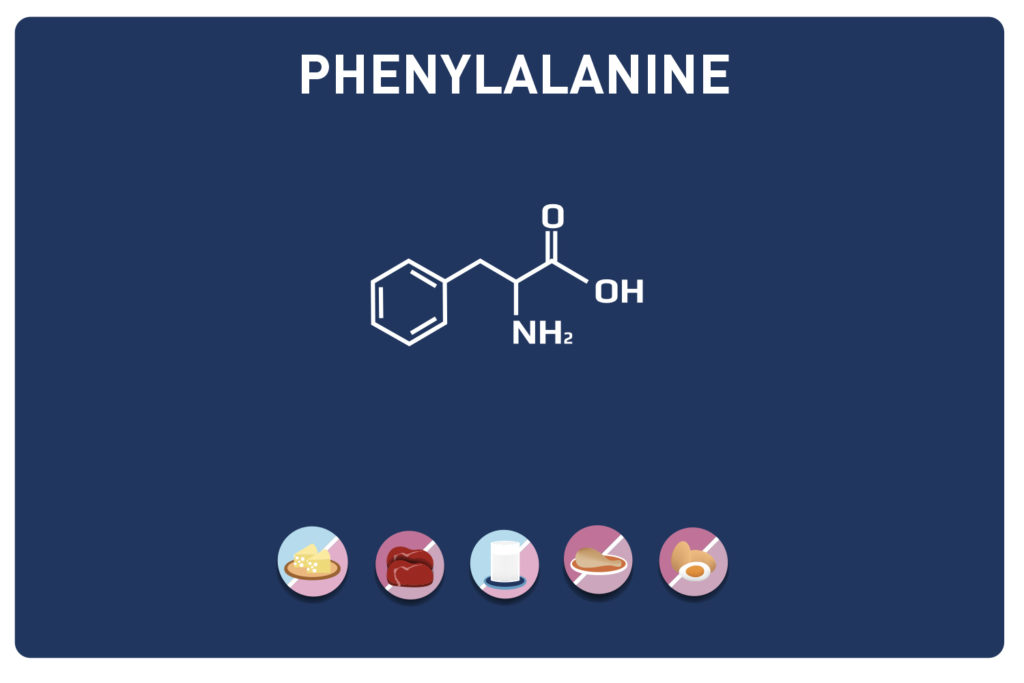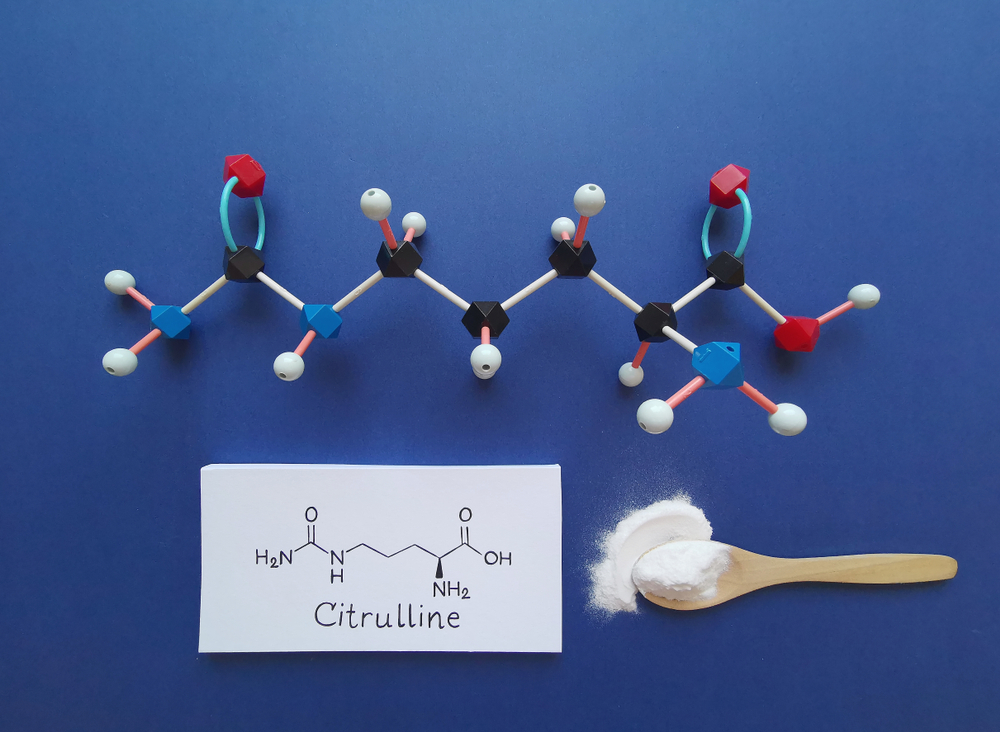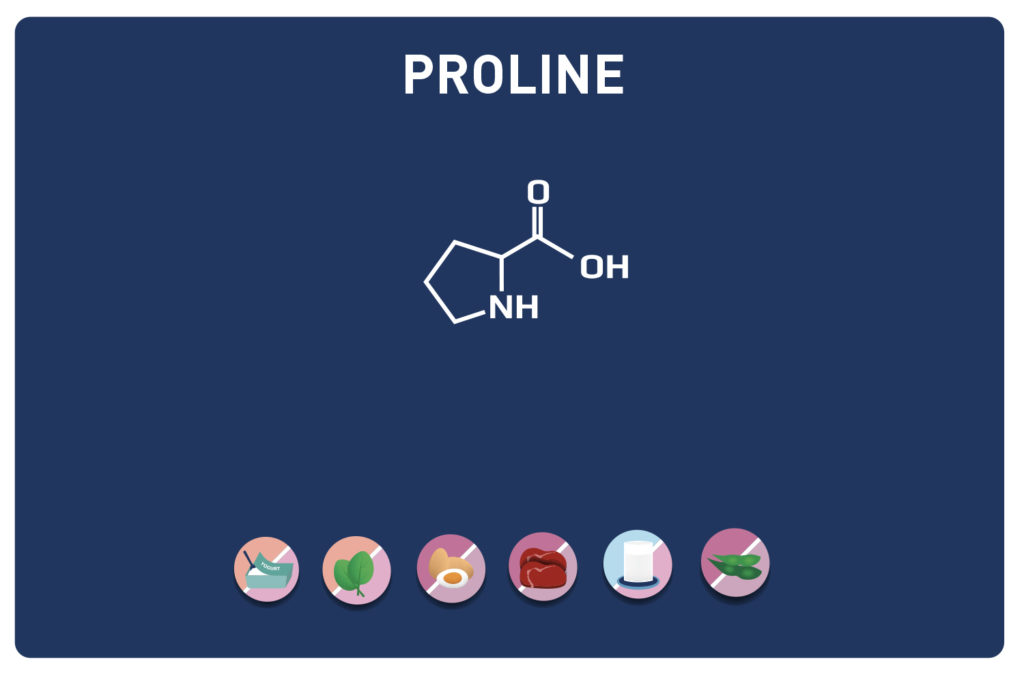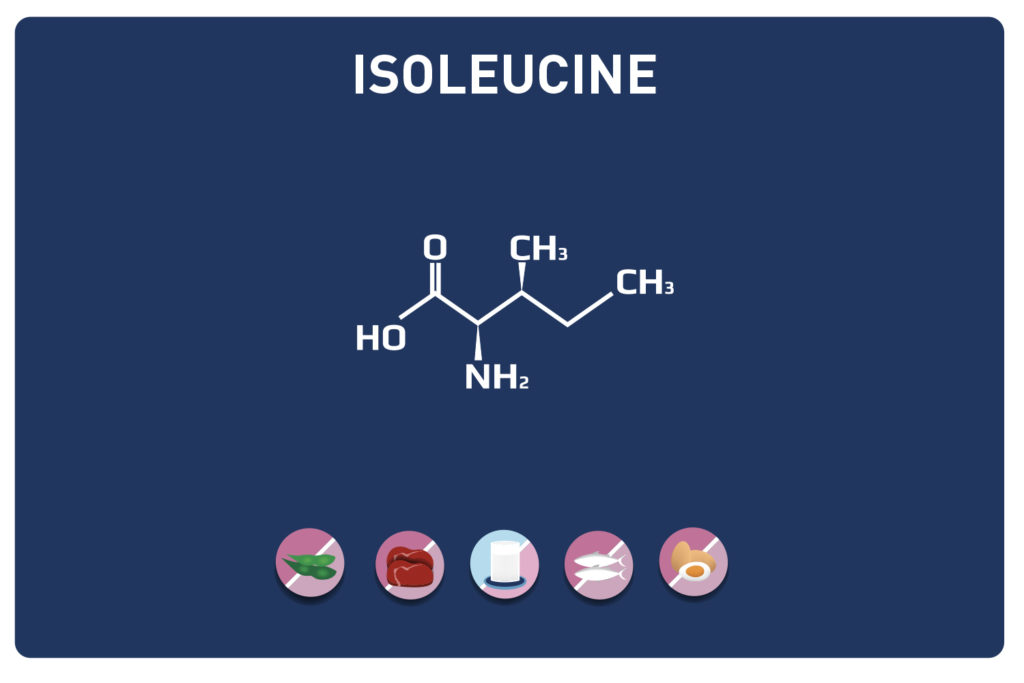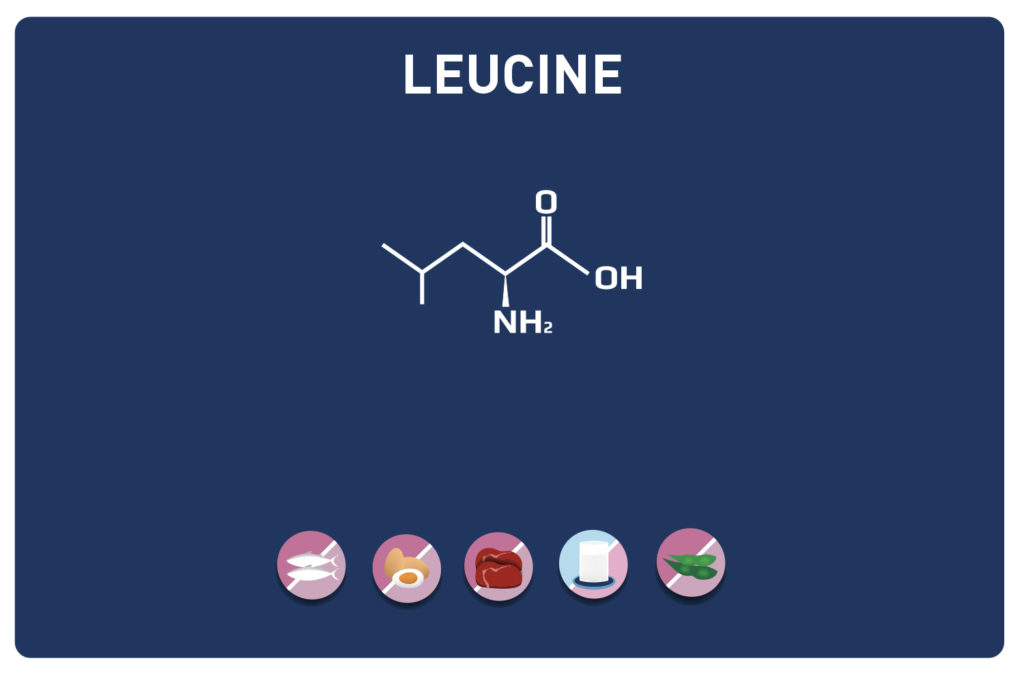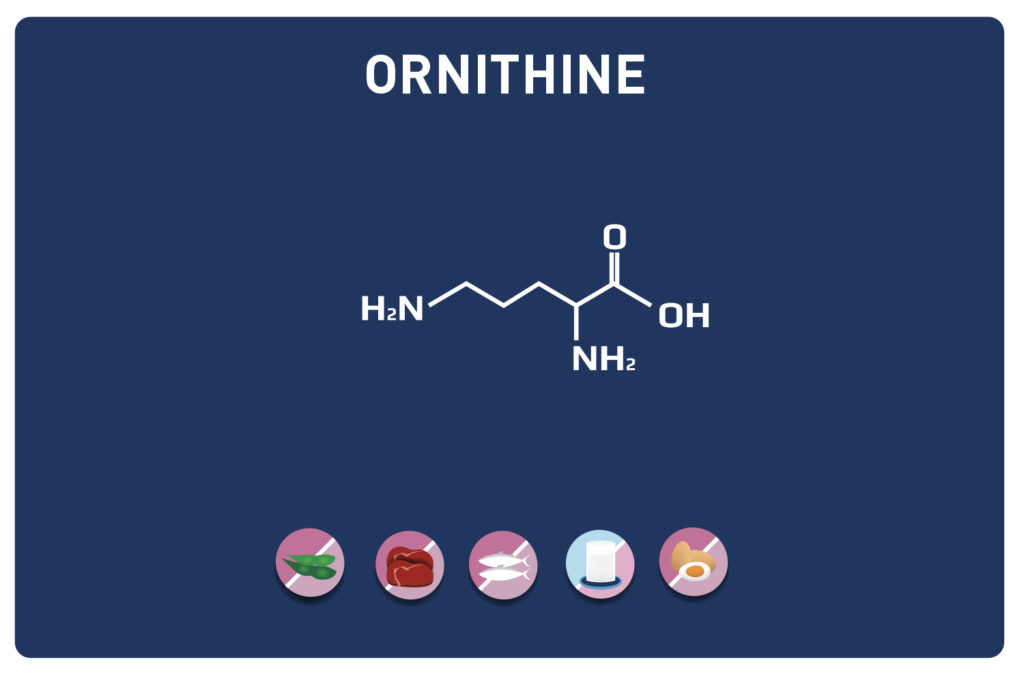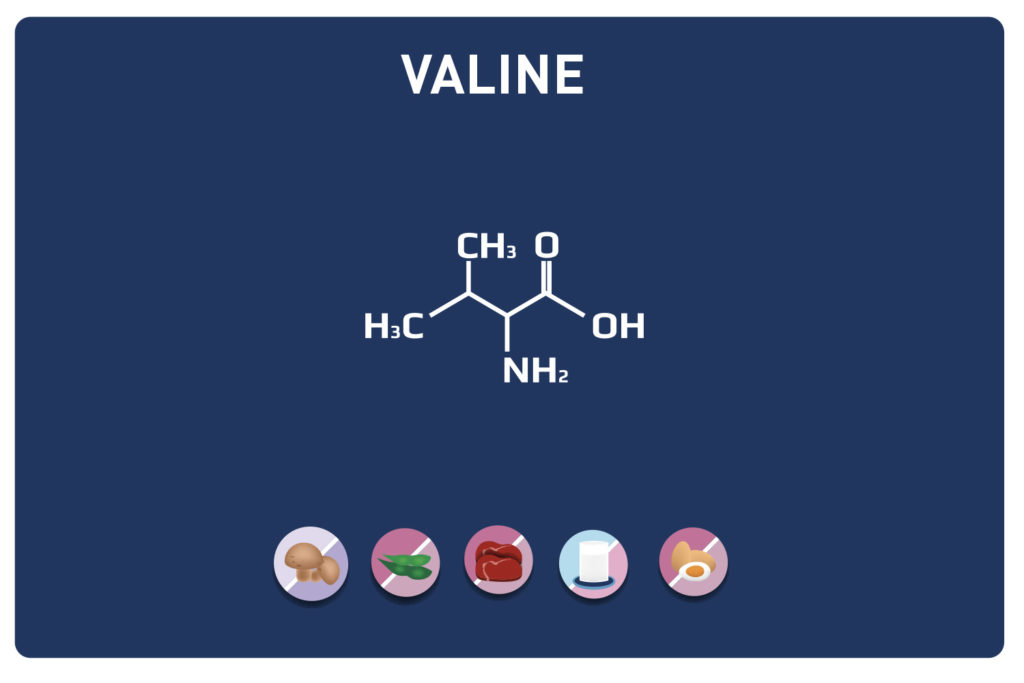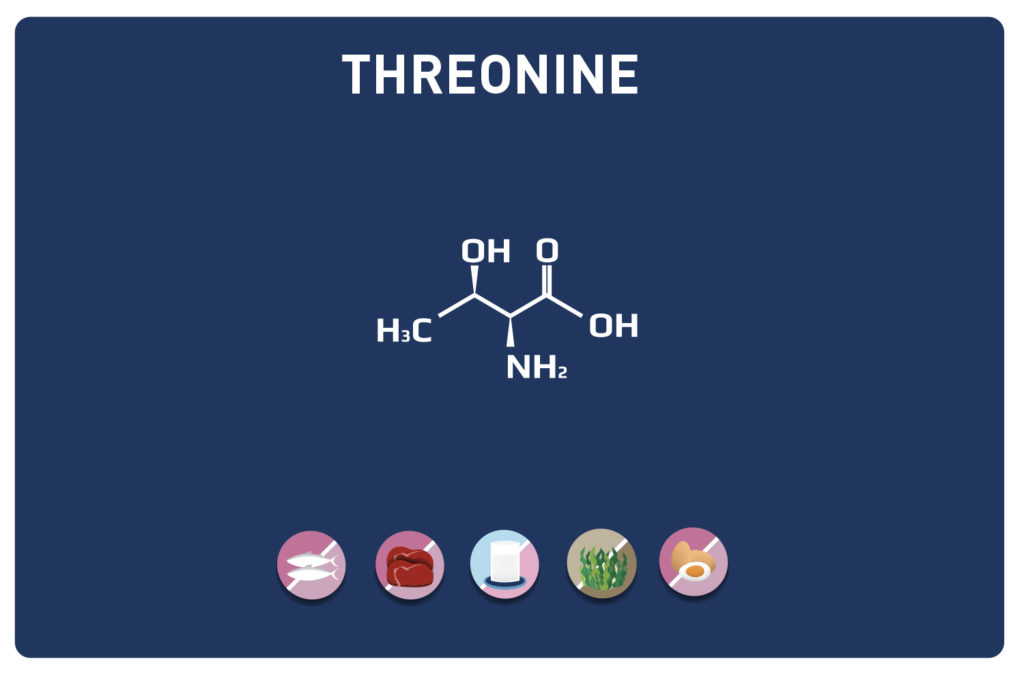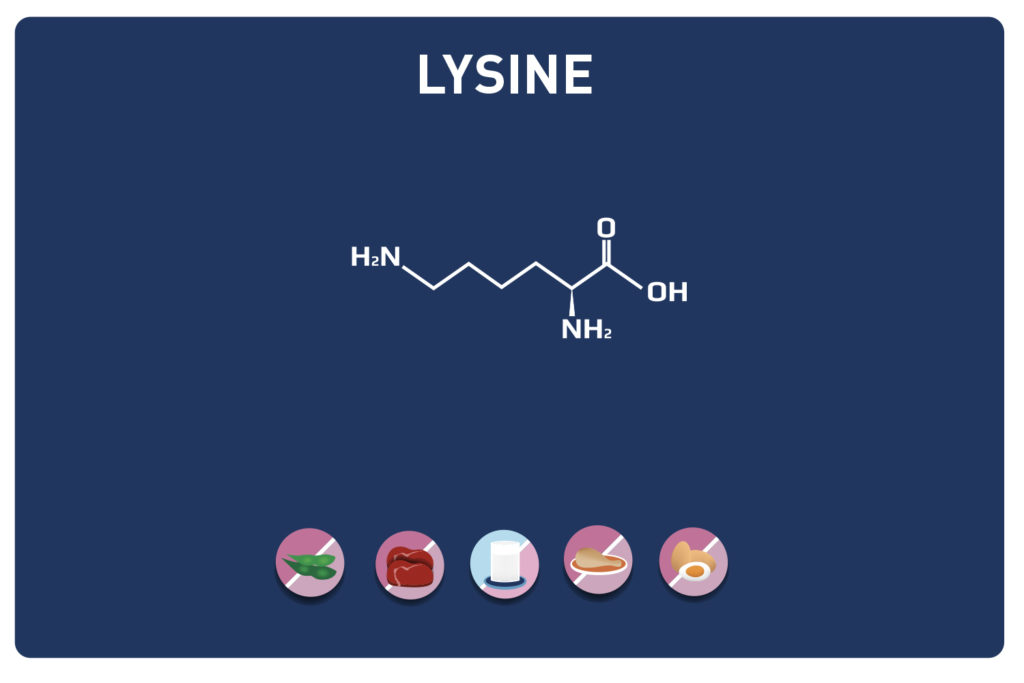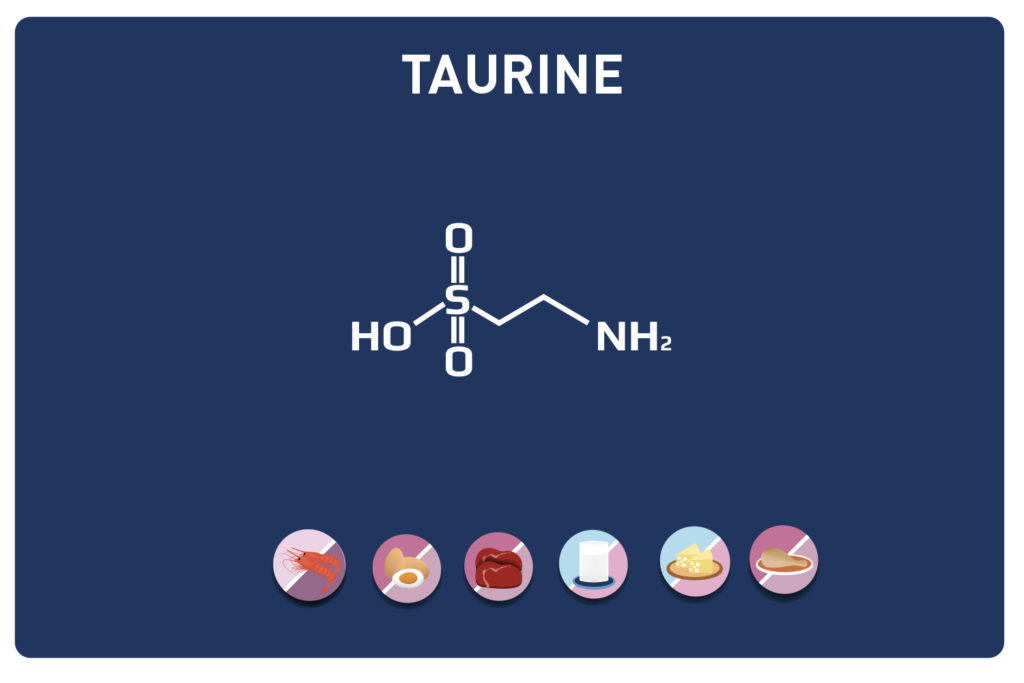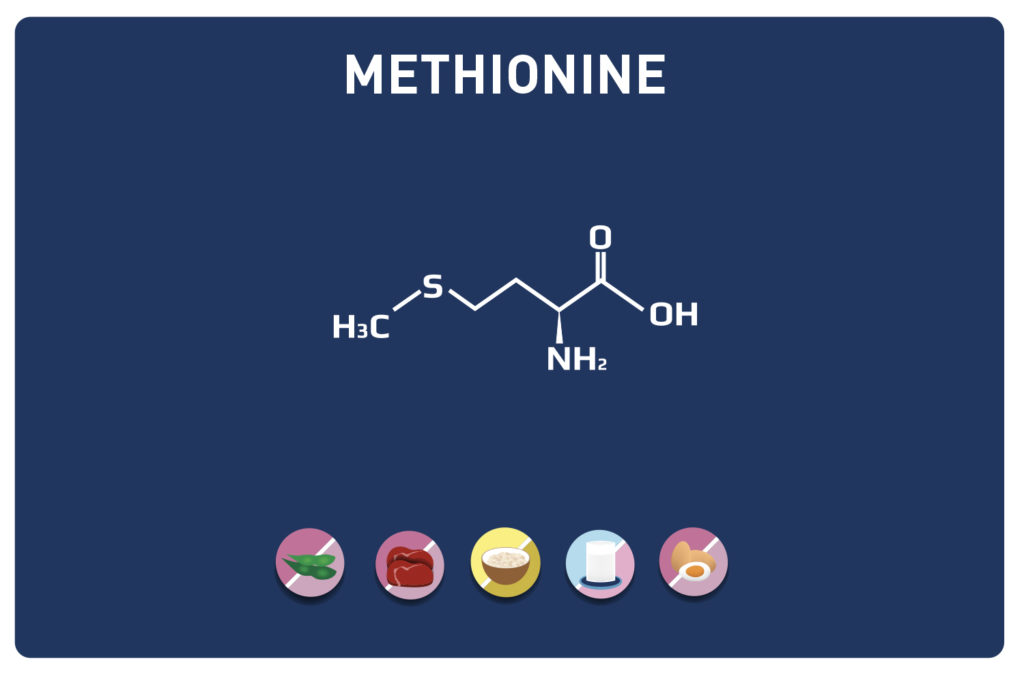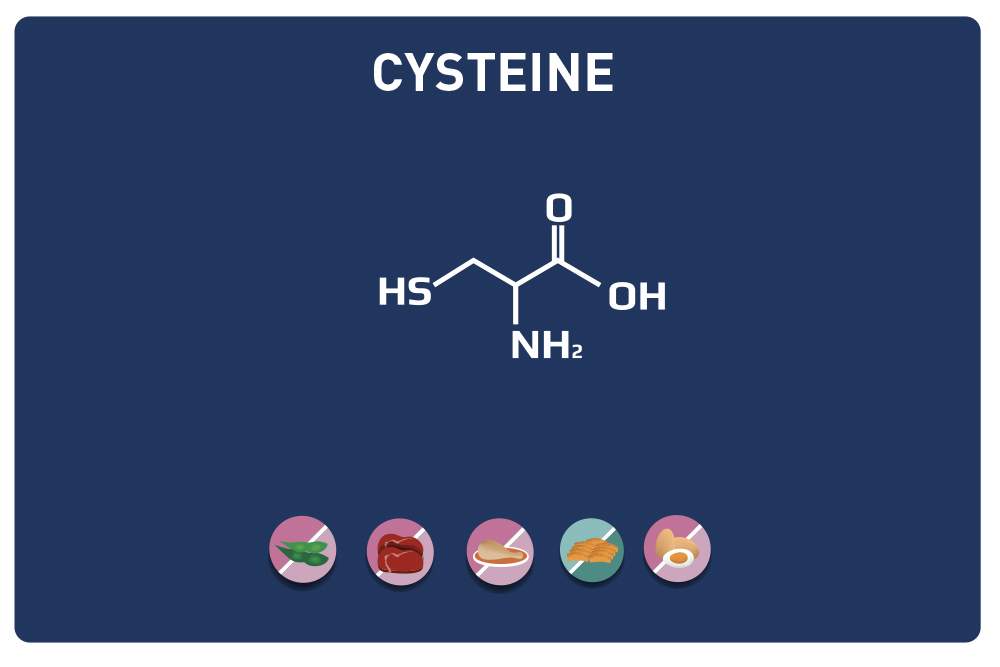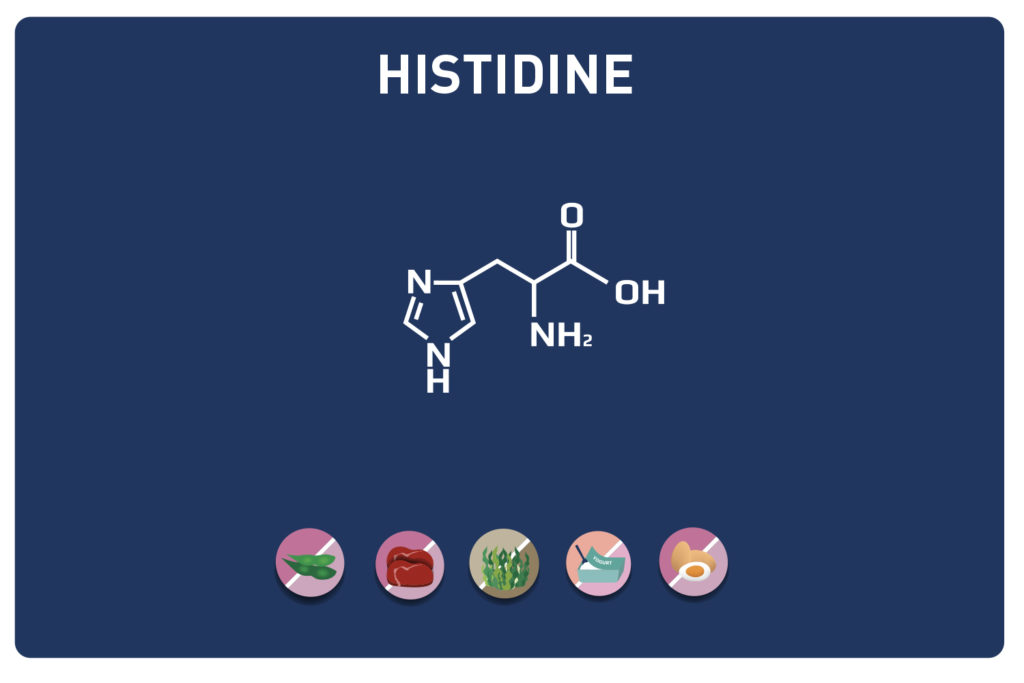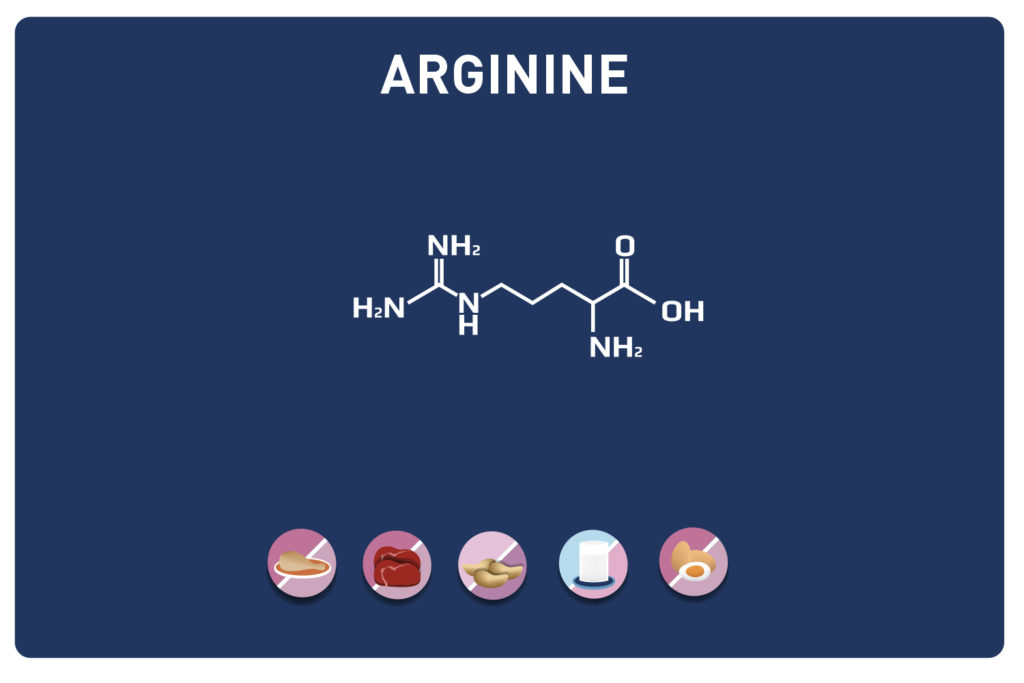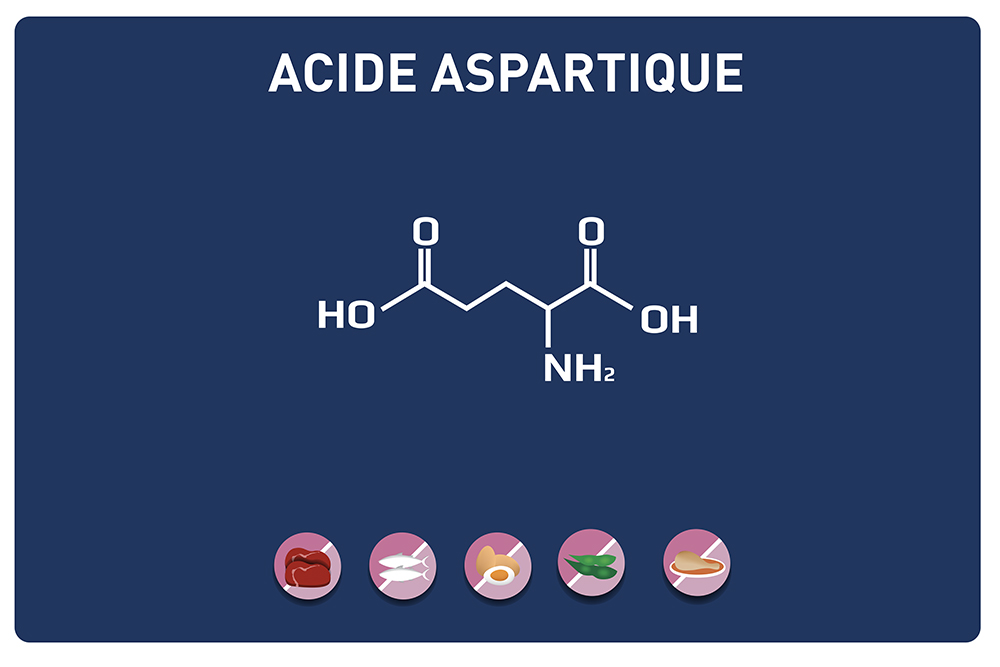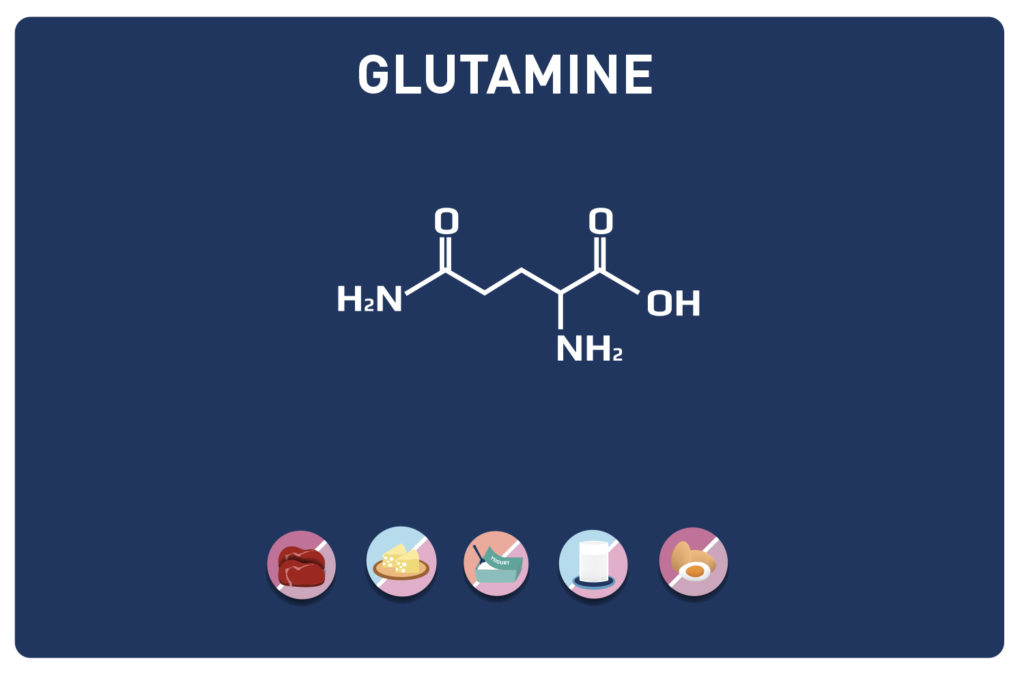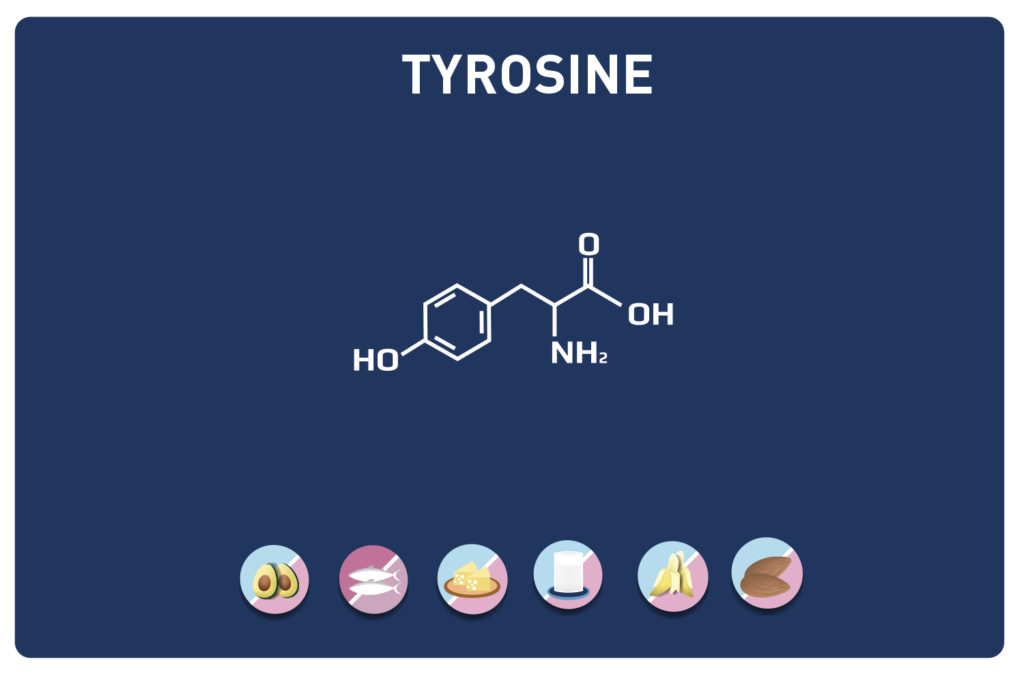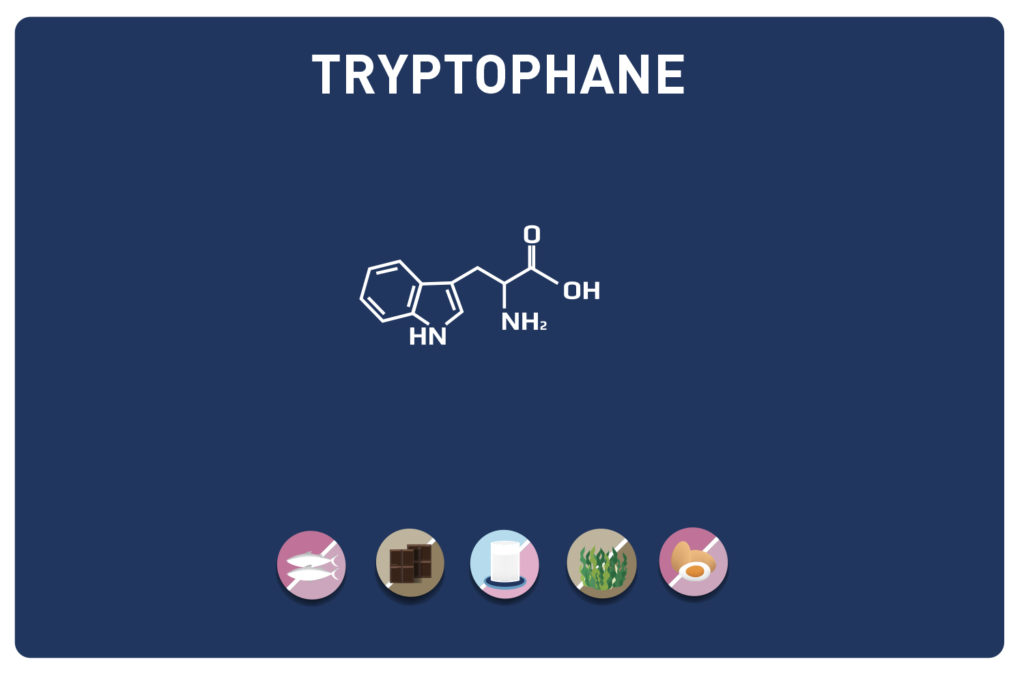Phenylalanine is an essential amino acid belonging to the aromatic amino acids*. As an essential amino acid it must be supplied by the diet as the body is unable to synthesise it.
A precursor of tyrosine and hormones such as adrenaline, noradrenaline, melanin and dopamine, it is also involved in the production of aspartame.
Phenylalanine ensures the proper functioning of the nervous system and promotes memory.
By stimulating the thyroid gland, it causes the release of compounds that prevent the degradation of endorphins, which has an obvious analgesic effect. In large quantities, it accelerates intestinal transit and has a laxative effect.
*The aromatic amino acids are phenylalanine, tyrosine and tryptophan.
ASPARTAME
Aspartame is a synthetic sweetener (or chemical substitute) that has
about 150 times the sweetness of sugar. Discovered by chance in 1965 by
the American chemist Jim Schlatter, it is now present in a large number
of so-called "low-calorie" products**, which are generally used by all
those who wish to lose weight by reducing their calorie intake.
A US study that published studies linking the consumption of aspartame to possible health problems (cancer - premature births) caused a 7% drop in sales of low-calorie drinks in the US.
To put an end to the many controversies surrounding this additive, the European Food Safety Authority (EFSA) has reacted and has just given its verdict after more than two years of study.
According to the EFSA, there is no reason to be concerned about aspartame if the following guidelines are followed: The daily dose should not exceed 40 mg per kilo of body weight. If this dose is respected, and still according to this conclusion, it would constitute an adequate protection for the general population. As an example, a can of sweetened soft drink contains about 180g of aspartame, which means that a 75kg person would have to drink 16 cans per day to exceed this daily dose.

